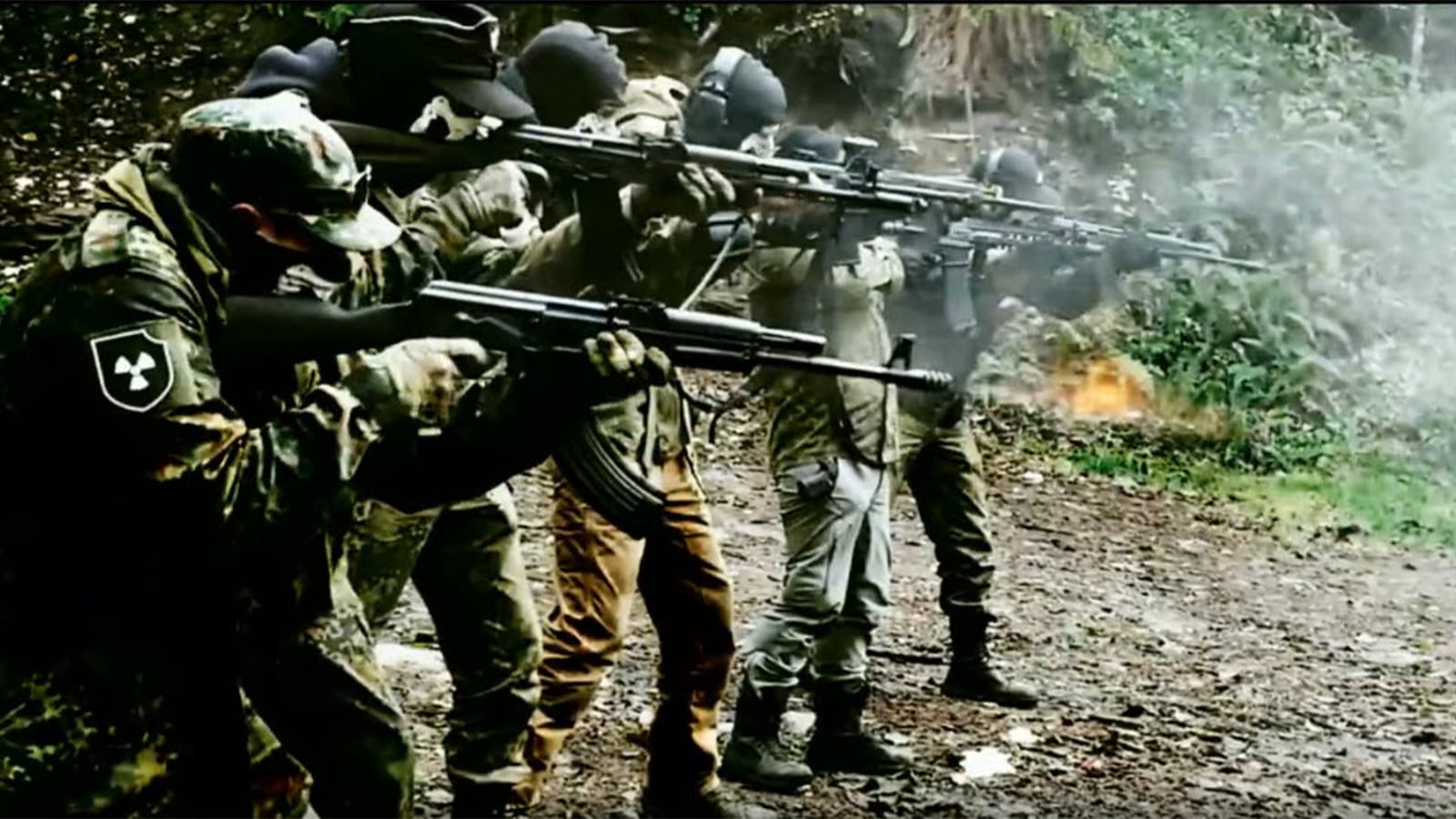The recent arrests of Jarrett William Smith, a former U.S. Army soldier who discussed plans to “bomb a major U.S. news network,” and Conor Climo, a Las Vegas man who plotted attacks on a synagogue and LGBT bar, give an inkling of the growing threat posed by far-right terrorists in the United States.
The problem of white supremacist violence is international. From the horrific attack on a mosque in Christ Church, New Zealand, to the assault on a synagogue in the German city of Halle, the movement often follows the same horrific script—live-streaming the carnage, disseminating a manifesto, comments full of tongue-in-cheek internet references—and governments are scrambling to counter this threat.
But U.S. laws have a special problem, what might be called a “terror gap” between “foreign” and “domestic” terror organizations.
While the arrests of Smith and Climo mark a new level of initiative by the federal government, there is still much more to be done. What allows far-right terrorist groups to thrive in the U.S. is a legal double standard that binds the hands of even the most proactive members of law enforcement.
This double standard is exemplified by groups like Atomwaffen, a neo-Nazi paramilitary group with major influence in the far-right online community. A video this past May shows people with Atomwaffen patches on their arms carrying out paramilitary drills with assault rifles. They then burn the flags of Israel, the United Nations, the Gadsden “Don’t Tread on Me” snake, the gay pride rainbow, Black Lives Matter, the police-supporting Thin Blue Line—designating any and all as enemies. If it weren’t for the Atomwaffen branding, you’d think you were watching footage of an ISIS training camp on American soil.
Now combine this militancy with a widely aimed recruitment operation. Messages on Telegram, the far-right’s current online hub, recruit on behalf of Atomwaffen, directing prospects to different email addresses of region-specific chapters across the US, Europe, South America, and Australia.
Minding its popularity, it’s not surprising to see that Atomwaffen has inspired other neo-Nazis to launch offshoot chapters or like-minded groups across the globe, such as Feuerkrieg Division, a growing neo-Nazi organization which both Climo and Smith were associated with.
Media by such groups often advocate for terrorism and praise far-right attackers, including the Halle shooter and Pittsburgh synagogue shooter Robert Bowers.
This type of propaganda is a major lifeblood to the far-right community, just as it is for any extremist group or movement—no terrorist organization can grow without it.
The world witnessed the power of media with the rise of ISIS, leading governments to counter propagandists with the same urgency as fighters or financiers.
That is precisely why last October, a 34-year-old man named Ashraf Al Safoo was arrested for his work with Khattab Media Foundation, a prominent ISIS-linked media group that issued scores of threats and incitements against elections, public events, and other targets. Safoo himself never killed or planned to kill anyone, but the media he created helped amplify ISIS’ dangerous message, making him no less guilty of aiding the group.
Taking note of Safoo’s story, you might ask yourself how groups like Atomwaffen or Feuerkrieg Division can run their threat propaganda machines—let alone carry out paramilitary drills with the objective of overthrowing the U.S. government—with little to no interference. The answer is simple: what they do is, for the most part, not illegal.
The reason the U.S. government can arrest ISIS recruiters or media workers like Safoo and others is because the groups they support are Foreign Terrorist Organizations (FTOs), making their activities grounds for, in the language of court documents, “conspiracy to provide material support and resources to a foreign terrorist organization.” To support or be a member of an FTO in any capacity is a crime.
While actual acts of domestic terrorism—killing, assaulting, harassing—are obvious crimes, being a member of domestic terrorist organizations like Atomwaffen or Feuerkrieg Division in and of itself is not, despite their blatantly stated goals to spark collapse of the U.S. through terrorism.
The very phrase “domestic terrorist group” is in many ways legally meaningless. As assistant FBI Director Michael McGarrity explained before the House Homeland Security Committee in May: “A white supremacist organization is an ideology, it's a belief. But they're not designated as a terrorist organization.”
This lack of adequate domestic terror laws too often leaves far-right terrorist propaganda, incitement, and recruitment messages under the classification of hate speech, something protected under the First Amendment. A group like Atomwaffen, which bluntly and loudly states its goals for violence, is a perfect example of why this makes for a domestic security crisis.
Noting this problem, I’d like to echo the yet small but growing voices of legislators and others seeking to end this double standard in how we protect our nation from terrorism. The world has made immense progress against ISIS online and on the ground, in no small part due to the clear-cut laws against promoting it, whether financially, militarily, through its incitement propaganda machine.
That said, the U.S. legal system shouldn’t have to wait until the brink of an attack—or, as it too often does, the aftermath of one—to prosecute terrorists like Climo or Smith.
Membership of a group like Atomwaffen should bear all the same legal weight as ISIS, al Qaeda, or any other terrorist organization we don’t flinch at pursuing.
Any such list of designations should be regularly updated to address the rapidly changing landscape of groups that either form or, under pressure, dissolve only to reemerge under different names.
Such laws will make it immensely clearer to these far-right organizations and the platforms hosting them that they cannot remain online.
I don’t embrace such measures lightly. I’ve been very vocal throughout my counter-terrorism career speaking out against overreaching measures by the government, whether attempting to regulating encrypted messenger services or other ill-guided policies.
But the far-right community has grown dramatically in the last year, with new waves of attacks and uninterrupted online spaces that inspire them—a very similar condition to that of ISIS shortly before it established its so-called Caliphate. This is a critical moment for the U.S. government to prove if it is capable of learning from history. While terrorist legislation will not be a silver bullet to stop the threat of attacks by neo-Nazis and white supremacists, it would mark a major step in the right direction.
As it’s increasingly said these days, "Terrorism is terrorism.” So why perpetuate the legal double standard?








